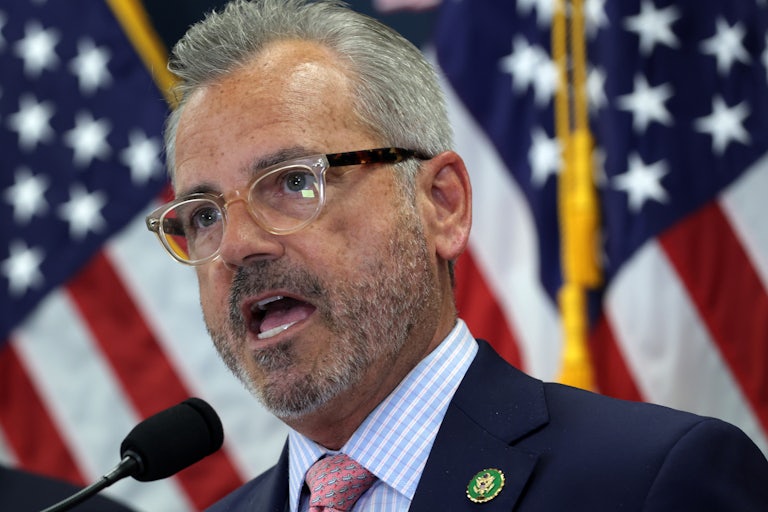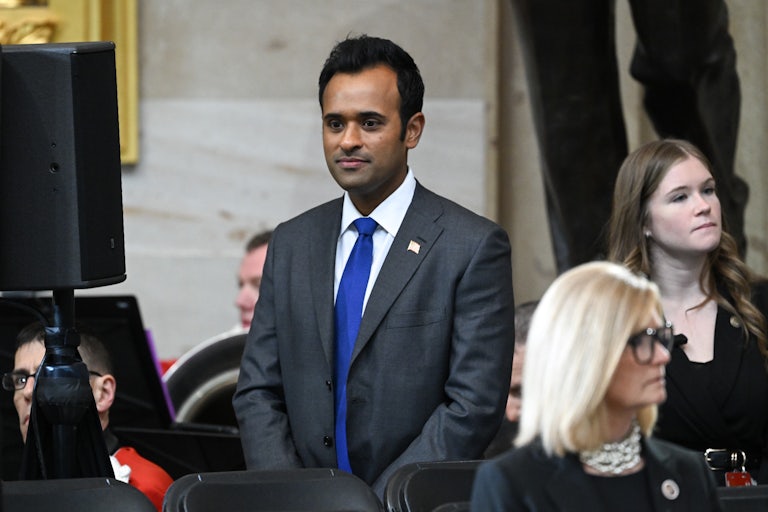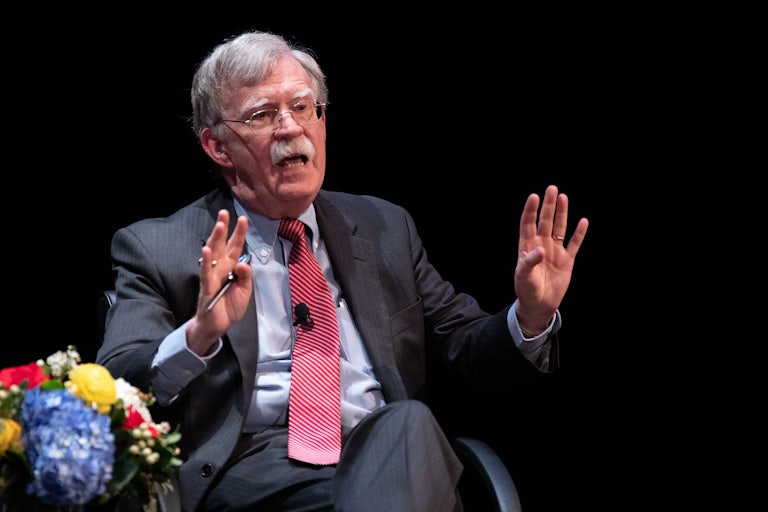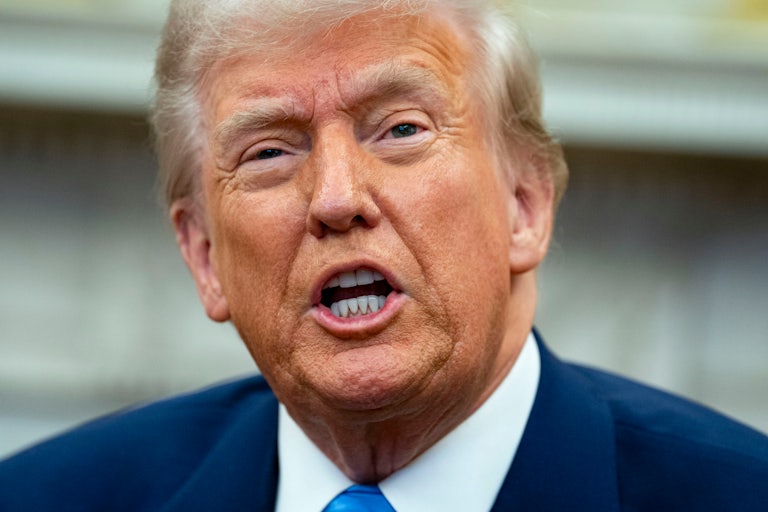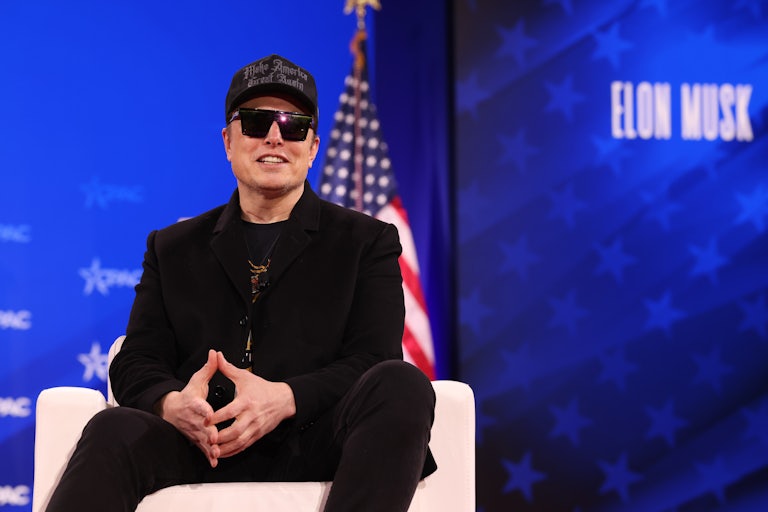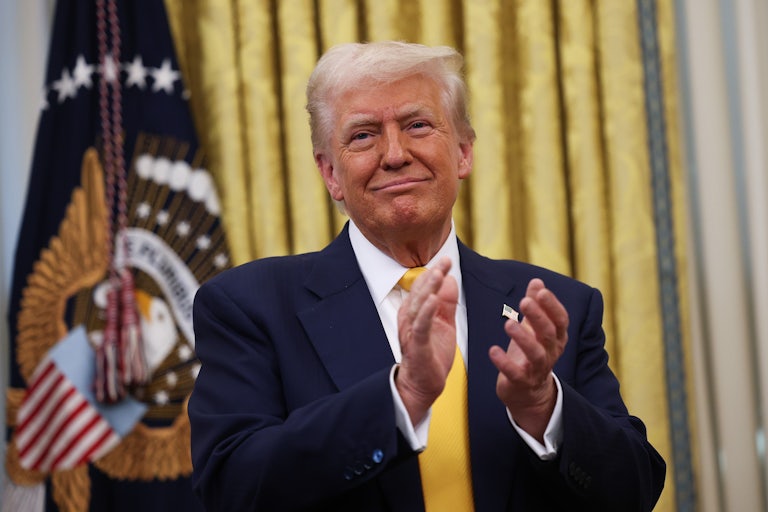Elon Musk Splits Republican Party Further on Reconciliation Bill
House Speaker Mike Johnson was already struggling to unite his party behind the measure.

Mike Johnson is trying and failing to maintain the appearance of budget unity within the GOP—and Elon Musk is only making it harder.
The looming Republican budget resolution is an attempt to pack Donald Trump’s beefy agenda into one “big, beautiful bill.” But Republican holdouts, potentially influenced by Musk, have put that beauty in jeopardy.
While Johnson told Politico Tuesday he had “no concerns” and felt “very positive” about the reconciliation bill’s prospects, other Republicans had different ideas.
“If the Republican budget passes, the deficit gets worse, not better,” MAGA cheerleader Representative Thomas Massie wrote Monday on X.
“That sounds bad,” Elon Musk replied, reinforcing the MAGA wing’s opposition to Johnson’s version of the budget, which notably does not include the deep cuts to crucial programs that have huge standard-of-living effects, such as Medicaid—and leaving the budget in a precarious, vote-lacking position.
The weight of a three-word X reply from the country’s most influential unelected civilian seriously irked some members of the Republican Party.
“I hope we’re not going to have this come to whatever is said on X to change months and months of substantive work to actually do this in a deficit-neutral way,” Representative Blake Moore told Politico. “I wish we were eliminating as much of the deficit is possible. What’s missing from that X exchange is what happens if it doesn’t pass, and we have the largest tax increase on lower and middle income Americans ever. We can’t be so singularly focused on one aspect of this.”
At least two other representatives have said they intend to vote against the bill. They include Ohio Republican Warren Davidson and Indiana lawmaker Victoria Spartz, a die-hard Department of Government Efficiency loyalist.
This mess certainly won’t be resolved tonight, as Speaker Johnson told Punchbowl’s Jake Sherman: “There may be a vote tonight. There may not be.”

